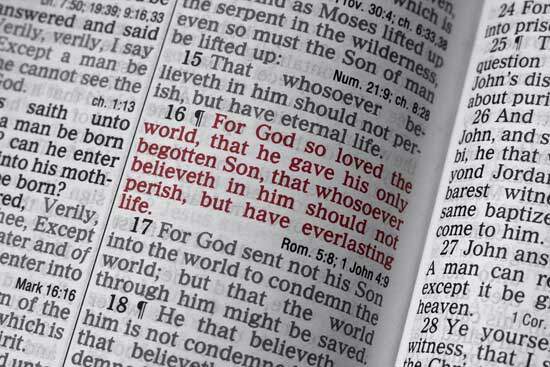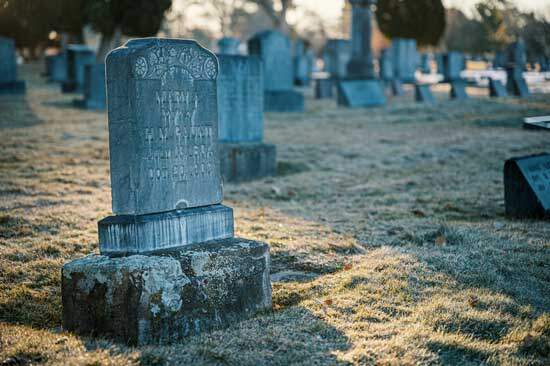What Do Seventh-day Adventists Believe About Death and the Resurrection?
Seventh-day Adventists believe that all who have ever lived and died will be resurrected at the end of the world. Some will be raised to live eternally with God. But those who have chosen against God will receive their judgement and be eternally separated from God.
This post will cover what the resurrection means in a biblical sense, and the role of the resurrection(s) in the plan of salvation.
Here are five things you’ll learn about this subject:
- How the two resurrections will happen at the end of the world
- The purpose of the resurrections
- Their implications on the plan of salvation
- The state of those who are dead
- And how an understanding of the resurrections affects our lives today
Adventists believe that the resurrection of the righteous is the climax and the great fulfillment of all their hopes in Christ. They even have it as one of their fundamental beliefs which reads:
When Christ, who is our life appears, the resurrected righteous and the living righteous will be glorified and caught up to meet their Lord. The second resurrection, the resurrection of the unrighteous, will take place a thousand years later.”
What is resurrection?
The Cambridge dictionary defines resurrection as “the act or fact of bringing someone back to life, or bringing something back into use or existence.”
It goes further to say that “In the Christian religion, the Resurrection is Jesus Christ’s return to life on the third day after His death, or the return of all people to life at the end of the world.”
In the Bible, the word “resurrection” appears 40 times, mostly in the New Testament.
But the concept of the resurrection is also found in the Old Testament. Like in the story where Elisha raises the Shunamite’s son back to life (2 Kings 4:18-37).
Many of the times we see resurrection in the Bible, it’s of a person being resurrected so they can continue their earthly life. If they were ill before, their health was restored, but otherwise they were back to “normal,” just like any other human being. And they went on to die a natural death.
The mass resurrection at the end times, which is set in motion at Jesus’ Second Coming, is different. This will be a holy resurrection in which those who died believing in Jesus will receive eternal bodies and have their minds cleansed from sin (1 Corinthians 15:51-53). Those who are resurrected and have rejected Jesus’ sacrifice will have a different fate.
Resurrection at the End Times
Scripture talks about two resurrections that will happen at the end of the world:
- The resurrection of life (John 5:29)
- The resurrection of condemnation (John 5:28).
The resurrection of life
 This is the resurrection of the righteous who died before the second coming of Jesus. They are raised to life when He returns the second time.
This is the resurrection of the righteous who died before the second coming of Jesus. They are raised to life when He returns the second time.
Scripture calls it “the first resurrection” in the book of Revelation when it says:
“Blessed and holy is he who has part in the first resurrection. Over such the second death has no power, but they shall be priests of God and of Christ, and shall reign with Him a thousand years” (Revelation 20:6, NKJV).
God raises the righteous dead so that He can take them to heaven together with the righteous who will be alive when Jesus comes.
Paul describes it to the Thessalonians when he says:
“For the Lord Himself will descend from heaven with a shout, with the voice of an archangel, and with the trumpet of God. And the dead in Christ will rise first. Then we who are alive and remain shall be caught up together with them in the clouds to meet the Lord in the air. And thus we shall always be with the Lord” (1 Thessalonians 4: 16-17, NKJV).
And when they have been raised, they will not have the same old or diseased bodies that they died with. Instead, they’ll receive perfect bodies that can live for eternity with God. Bodies that will never die again (1 Corinthians 15:53-55).
This will be the fulfillment of Jesus’ promise to come and take His faithful followers to the place where He went to prepare for them in heaven (John 14:1-3).
And the believers will finally receive their reward of eternal life (John 3:16).
And in the plan of salvation, this will be the signal victory over sin and death for the righteous. They’ll receive the gift of eternal life. And will not have to die the second death since they accepted Jesus’ sacrifice for them and His death on their behalf. The curse of death that came as a result of the fall will be forever revoked since Jesus will have paid the penalty for them (1 Corinthians 15:55-57).
The resurrection of condemnation
This is the resurrection of all the unrighteous who ever lived.
It’s the second resurrection, as it will happen one thousand years after the first resurrection.
“But the rest of the dead did not live again until the thousand years were finished” (Revelation 20:5, NKJV).
While the righteous dead will be resurrected at the Second coming, the unrighteous who will be living at that time will be killed. And they will remain dead with the other unrighteous who had died before the second coming for the whole of the Millenium.
“And the rest were killed with the sword which proceeded from the mouth of Him who sat on the horse” (Revelation 19:21, NKJV).
Then after one thousand years, the New Jerusalem will descend from heaven to earth with Jesus and the righteous in it (Revelation 21:2).
And all the unrighteous from all ages will be resurrected. They will be as many as “the sands of the sea” (Revelation 20:8, NKJV)
 John describes the scene as follows:
John describes the scene as follows:
“The sea gave up the dead who were in it, and Death and Hades delivered up the dead who were in them” (Revelation 20:13, NKJV).
Then Satan will deceive them to attack the New Jerusalem and take it over. But just then, God will intervene. The white Throne will be set up where God will sit and issue judgement on each of them, and then they’ll be destroyed (Revelation 20:11-12).
“They went up on the breadth of the earth and surrounded the camp of the saints and the beloved city. And fire came down from God out of heaven and devoured them. The devil, who deceived them, was cast into the lake of fire and brimstone where the beast and the false prophet are” (Revelation 20:9-10, NKJV).
They will be judged, “each one according to his works” (Revelation 20:13, NKJV).
These people will face what the Bible calls “the second death” (Revelation 2:11; 20:6; 20:14; 21:8), and it will lead to their total and eternal destruction.
“These shall be punished with everlasting destruction from the presence of the Lord and from the glory of His power” ( 2 Thessalonians 1:9, NKJV).
Notice that their destruction is “everlasting.”
That is, they are destroyed forever. They will perish forever.
But it doesn’t mean that the process of destroying them will last forever. The fires of hell won’t last eternally; instead, the destruction that these fires bring is eternal. Nothing will remain or be brought back.
The psalmist made it clear that after a period of punishing the wicked for their sins, they will be no more.
“For yet a little while and the wicked shall be no more; Indeed, you will look carefully for his place, But it shall be no more” (Psalm 37:10, NKJV).
The second resurrection makes it possible for God to judge those who died without accepting the gift of eternal life. Finally, God destroys all sin and sinners in the fires of hell, including Satan and his angels.
Why the resurrection is so profoundly meaningful
The apostle Paul links the end time resurrection with Christ’s own resurrection when he says:
“But if there is no resurrection of the dead, then Christ is not risen. And if Christ is not risen, then our preaching is empty and your faith is also empty.
Yes, and we are found false witnesses of God, because we have testified of God that He raised up Christ, whom He did not raise up—if in fact the dead do not rise.
For if the dead do not rise, then Christ is not risen. And if Christ is not risen, your faith is futile; you are still in your sins!
Then also those who have fallen asleep in Christ have perished.
If in this life only we have hope in Christ, we are of all men the most pitiable” (1 Corinthians 15:13-19, NKJV).
 From this passage, we find two main reasons why the end time resurrections are crucial:
From this passage, we find two main reasons why the end time resurrections are crucial:
- The resurrection of the dead at the end times is connected with Christ’s resurrection, since He took on our penalty of sin. Just as God raised Him, He also will raise us.
- If there is no resurrection, then those who have slept (died) believing in Christ have perished.
What does it mean that they have “perished”?
The Greek verb for perish is apolonto, which means, “ruined, lost, perished, destroyed.”
In fact, it’s the same Greek word used in John 3:16 when it says “that whoever believes in Him should not perish [apolonto] but have everlasting life” (NKJV).
But how come those who died in Jesus are said to have perished? Aren’t they supposed to have eternal life instead of perishing, according to John 3:16?
Some believe that once the righteous die, they go straight to heaven to be with Jesus.
To reconcile the idea Paul is presenting with the promise of eternal life in John 3:16, we need to understand what happens when human beings die.
What Happens When People Die?
 There are two general beliefs in the Christian world about what happens at death.
There are two general beliefs in the Christian world about what happens at death.
Many people believe the souls of the saved go to heaven as soon as they die. Or if they were evil, they go to hell and suffer from then on.
Others, including Adventists believe that the dead “sleep,” unconscious in the grave, and remain that way until the resurrection. It’s like their existence is put on pause until the Resurrection.
Let’s look to the Bible for information about the state of the dead.
Jesus’s words:
“Do not marvel at this; for the hour is coming in which all who are in the graves will hear His voice and come forth—those who have done good, to the resurrection of life, and those who have done evil, to the resurrection of condemnation” (John 5:28, 29, NKJV).
Jesus describes the dead as if they stay in their graves, awaiting future judgment.
The prophet Daniel:
“Many of those whose bodies lie dead and buried will rise up, some to everlasting life and some to shame and everlasting disgrace” (Daniel 12:2, NLT).
This verse shows that the destinies of the dead will be awarded at the resurrection. Not at the time they die.
Here are three more verses that highlight where the dead go at death and their physical, mental and emotional states:
“When they breathe their last, they return to the earth, and all their plans die with them” (Psalm 146:4, NKJV).
“The dead cannot sing praises to the LORD, for they have gone into the silence of the grave” (Psalm 115:17, NKJV).
“The living at least know they will die, but the dead know nothing” (Ecclesiastes 9:5, NKJV).
All these texts describe the dead as unconscious in the ground. They don’t move, think, observe, love, hate, plan or even worship. And they remain this way at least until the Second Coming of Jesus.
What Else do Seventh-day Adventists Believe about Death?
 For believers in Jesus, the Second Coming seems no more than a moment after their death.
For believers in Jesus, the Second Coming seems no more than a moment after their death.
Just like when you sleep, the next thing you know after you doze off is when you wake up. And though it may be eight hours later, it feels just like the next moment to you.
But people often say that Paul said He’d be with Christ as soon as he died when he wrote:
“For me, to live is Christ, and to die is gain. But if I live on in the flesh, this will mean fruit from my labor; yet what I shall choose I cannot tell. For I am hard-pressed between the two, having a desire to depart and be with Christ, which is far better” (Philippians 1: 21-23, NKJV).
What Paul meant here is that after he closed his eyes in death, the next thing he’d know would be his resurrection. And then He will be with Christ.
And there’s another story in the Gospels (often known as the Transfiguration) when Elijah and Moses, who had lived long before, appeared to Jesus.
“Now it came to pass, about eight days after these sayings, that He took Peter, John, and James and went up on the mountain to pray.
As He prayed, the appearance of His face was altered, and His robe became white and glistening.
And behold, two men talked with Him, who were Moses and Elijah, who appeared in glory and spoke of His death which He was about to accomplish at Jerusalem” (Luke 9:28–36; see also Matthew 17:1–8, Mark 9:2–8, NKJV).
The Bible explains that Elijah never died but was taken to heaven alive.
“Then it happened, as they continued on and talked, that suddenly a chariot of fire appeared with horses of fire, and separated the two of them; and Elijah went up by a whirlwind into heaven” (2 Kings 2:11, NKJV).
And though Moses died, the New Testament implies that he had been resurrected.
Jude tells us that after Moses’ death, Satan and Michael contended over his body. And since he is seen at the Transfiguration with Elijah, who was taken to heaven alive, it means he was resurrected. Otherwise, there would be no point of them arguing over a dead body.
“Yet Michael the archangel, in contending with the devil, when he disputed about the body of Moses, dared not bring against him a reviling accusation, but said, ‘The Lord rebuke you!’ ” (Jude 9, NKJV).
Therefore, the two who appeared to Jesus were Elijah who had never died, and Moses who had been resurrected. Hence, this account does not contradict the idea of the dead asleep until the resurrection.
What Do Seventh-day Adventists Teach about the Immortality of the Soul?
Adventists believe that the human soul is not immortal. Certainly not in its sin-infected state.
This means no human has the ability to live forever after the body disintegrates at death.
The concept of immortality of the soul has been discussed throughout the years. If we look to the Bible, it says that God alone has immortality.
“The King of kings and Lord of lords, who alone has immortality, dwelling in unapproachable light, whom no man has seen or can see, to whom be honor and everlasting power. Amen” (1 Timothy 6:16, NKJV).
We find the same idea in Jesus’ words when He said:
“And do not fear those who kill the body but cannot kill the soul. But rather fear Him who is able to destroy both soul and body in hell” (Matthew 10:28, NKJV).
If the soul and body can be destroyed in hell, then it can’t be inherently immortal.
Also, Ezekiel says that “the soul who sins shall die” (Ezekiel 18:20, NKJV).
“The Scriptures nowhere describe immortality as a quality or state that man—or his ‘soul’ or ‘spirit’—possesses inherently. The terms rendered ‘soul’ or ‘spirit’ . . . in the Bible occurs more than 1600 times, but never in association with the words ‘immortal’ or ‘immortality.” 1
What’s more, eternal life is only promised to those who accept the sacrifice of Jesus Christ.
“And this is the testimony, that God gave us eternal life, and this life is in His son. Whoever has the Son has life; whoever does not have the Son of God does not have life” (1 John 5:11, 12).
If eternal life is conditional, then it wouldn’t be an inherent trait of the human soul.
What about the stories of people communicating with the dead?
 For starters, the Bible forbids the idea of speaking to the dead.
For starters, the Bible forbids the idea of speaking to the dead.
“There shall not be found among you anyone who makes his son or his daughter pass through the fire, or one who practices witchcraft, or a soothsayer, or one who interprets omens, or a sorcerer, or one who conjures spells, or a medium, or a spiritist, or one who calls up the dead” (Deuteronomy 18:10-11; see also Leviticus 19:31; 20:27, NKJV).
The original Hebrew of the phrase “calls up the dead” literally means “who seeks the dead.”
The Israelites were forbidden to do that, even on the pain of capital punishment (Leviticus 20:27).
It’s such a dark practice that God equated it with child sacrifice, witchcraft, sorcery, and all sorts of demonic practices that are not given merit in the Bible.
These things are associated with the devil, not God. They are dangerous practices of trickery and spiritual corruption.
Peter warns us to “be sober, be vigilant; because your adversary the devil walks about like a roaring lion, seeking whom he may devour” (1 Peter 5:8, NKJV).
Also, the book of Revelation warns about “the spirits of demons, performing signs” in the last days (Revelation 16:14, NKJV).
These “talking dead people” are demons impersonating human beings, and doing these miracles to deceive people.
The Great Controversy is real. And with common deceptions out there about the immorality of the soul, people who do not understand that the dead sleep unconscious in the grave until the resurrection are wide open to these deceptions.
And they often make contact with evil spirits thinking they are communicating with their dead relatives, whom the demons have impersonated.
How should the understanding of these resurrections affect us today?
 The fact that there is going to be a resurrection after death gives us hope. We are encouraged that even if we die, we can live again through faith in Jesus.
The fact that there is going to be a resurrection after death gives us hope. We are encouraged that even if we die, we can live again through faith in Jesus.
While death will always be an unpleasant and somber topic, we don’t need to fear death as a forever end to life. We can trust the words of Jesus when He said:
“I am the resurrection and the life. He who believes in Me, though he may die, he shall live. And whoever lives and believes in Me shall never die” (John 11:25, 26, NKJV).
Also, because we see that after the resurrection some receive eternal life, while others receive eternal condemnation. What makes the difference between those two fates is the choices we make in the here and now.
So, we can live with an understanding that “we must all appear before the judgment seat of Christ, that each one may receive the things done in the body, according to what he has done, whether good or bad” (2 Corinthians 5:10, NKJV).
Because the Bible clearly states that “it is appointed for men to die once, but after this the judgment” (Hebrews 9:27, NKJV).
The point is not to be scared of the judgement, but to be prepared for the resurrections through faith.
The good news is that even though we will face the judgement, we have the assurance that Jesus is interceding for us in the heavenly courtroom.
John tells us that even if we sin, “we have an Advocate with the Father, Jesus Christ the righteous” (1 John 2:1, NKJV).
He “is able to keep [us] from stumbling, and to present [us] faultless before the presence of His [God’s] glory with exceeding joy” (Jude 24, NKJV).
We can have hope in our Savior Jesus Christ, that He will come through for us, no matter what.
[Want to learn more about life, death, resurrection, and the glorious gift of Salvation through Jesus?]
[1] “Immortality,” SDA Bible Encyclopedia, rev. ed., p. 621
Questions about Adventists? Ask here!
Find answers to your questions about Seventh-day Adventists
More Answers
Why Many Seventh-day Adventists Choose a Vegetarian Diet
Why Many Seventh-day Adventists Choose a Vegetarian Diet?You may have an Adventist friend who is vegetarian, or maybe you’re attending a Seventh-day Adventist Church for the first time and notice the potluck doesn’t have any meat. This isn’t unusual in Adventism. In...
The Health Benefits of Fresh Air You Should Know About
The Health Benefits of Fresh Air You Should Know About“When you can’t breathe, nothing else matters,” the American Lung Association tells us. And while that’s true, the kind of air you’re breathing will determine the health benefits you experience. Breathing fresh...
What Do Seventh-day Adventists Choose to Eat?
What Do Seventh-day Adventists Choose to Eat?Food blogs overwhelm the internet; food fads are all the rage; and copycat and healthy versions of food are the subject of many a get-together. Eating—and eating the best way—is a big deal. And everybody has a different...
10 Incredible Ways Sunlight Can Improve Your Health
10 Incredible Ways Sunlight Can Improve Your HealthAre you concerned about sunlight’s negative effects? You might be the one who lathers on the sunscreen and covers up when you go outside. Or maybe you avoid being outside as much as possible. You might be surprised,...
Why Is Water So Important?
Why Is Water So Important?We all know that water is a substance we can’t live without. It quenches our thirst and keeps us hydrated on the inside. And it’s necessary for hygiene and cleansing on the outside too. But did you know that the cleansing properties of water...
Ellen White’s Writings and the Adventist Health Message
Seventh-day Adventists are known for their emphasis on healthy living. And Ellen G. White was a significant influence in the development of this priority and practice among Adventists.
Health Clinics
Ellen White and Adventist Healthcare—Ahead of Their Time Medical care in the mid-1800s was primitive, to say the least. Basic concepts we take for granted—such as proper handwashing or recognizing the dangers of bloodletting—were nonexistent. And doctors often had...
What Did Ellen White Teach about Vegetarianism?
What Did Ellen White Teach about Vegetarianism?One thing you might have heard about Seventh-day Adventists is their emphasis on a vegetarian lifestyle. If you’re wondering why that is, it goes back to our church’s humble beginnings: As Adventists studied the Bible,...
How Ellen White’s Teachings Can Improve Your Health
How Ellen White’s Teachings Can Improve Your Health Healthcare in the nineteenth century was said to leave “more disease than it took away” with its use of bloodletting and “medicines” like mercury and arsenic.1 As people questioned these methods, new approaches...
Change Your Perspective on Life with These 5 Mindsets
5 Biblical Mindsets to Change Your Life for the Better Sometimes, life is just plain hard. There’s no way around it. So would thinking about things differently really change anything? Our perspective on life, and everything it throws at us, affects more than we’re...
Bible Promises for When You’re Worried or Fearful
Bible Promises for When You’re Worried or Fearful The Bible is full of beautiful promises that can comfort us in a variety of situations. They can give us hope when we are hopeless, make us feel grateful for God’s love, and comfort us when we’re grieving or suffering....
12 Practical Ways to Overcome Worry
12 Practical Ways to Overcome Worry DISCLAIMER: This content is for informational purposes only. It does not constitute any professional medical advice and is not intended as a substitute for professional mental health therapy. It’s easy to get stuck in a cycle of...
How the Bible Talks About Worry, Fear, and Anxiety
How the Bible Talks About Worry, Fear, and Anxiety Worry and fear are the ingredients of anxiety. It’s easy to see how the world isn’t perfect—and the anticipation of a bad event or experience (that may or may not even happen) can end up draining the peace and...
How to Calm Anxious Thoughts, Using the Bible
How to Calm Anxious Thoughts, Using the Bible You were expecting a phone call from your daughter half an hour ago, and she still hasn’t called. She’s also not answering your calls. You feel your heart thumping as your thoughts race: What if she’s been in a car...
What You Should Know About the Adventist Health Studies
What You Should Know About the Adventist Health StudiesYou may have heard that Seventh-day Adventists care about health. But what you may not know is that Adventists have been the subjects of long-term research into lifestyle and health. Since 1958, researchers from...
Benefits of Sunlight
Yes, There Are Health Benefits of SunlightDespite the bad reputation it’s gotten, sunlight is generally associated with positivity, as shown by songs like “You Are My Sunshine,” or phrases that refer to delightful people as having a “sunny disposition.” There’s a...
Why Your Body Needs Rest for Optimal Health
Why Your Body Needs Rest for Optimal HealthStruggling to think straight? Wondering why you can’t remember that important tidbit you heard earlier today? Feeling like your emotions are about to explode? These are just some of the symptoms that can reveal your need for...
The Seventh-day Adventist Diet: One of Our Key Longevity Secrets
The Seventh-day Adventist Diet: One of Our Key Longevity SecretsOats, avocados, lentils, tofu—probably not what you first think of in a standard American diet. But if you show up at the home of an Adventist, chances are you may be served one of these staples. Out of a...
Why You Need Fresh Air
Why You Need Fresh Air“When you can’t breathe, nothing else matters,” the American Lung Association tells us. We couldn’t agree more! Breathing in clean air is an essential part of caring for our bodies, which God has given us. Together with other health principles,...
Sabbath Meal
Everything You Need to Know About Sabbath MealsFor Seventh-day Adventists, sharing a Sabbath meal with friends and family is one of the most special and memorable parts of the Sabbath. That’s why we want to share with you all about Sabbath meals and why they’re such a...
Adventists and Healthy Living
Adventists and Healthy LivingWhat’s the Adventist “Health Message” All About? One thing Seventh-day Adventists are known for is their emphasis on living healthy lives. Since our bodies are living temples of the Holy Spirit (1 Corinthians 6:19, 20), we strive to stay...
Water’s Importance—Physical Benefits and Spiritual Applications
Water’s Importance—Physical Benefits and Spiritual Applications We all know that water is a substance we can’t live without. Not only does it quench our thirst and keep us hydrated from the inside, but it’s necessary for hygiene and cleansing on the outside as well....
How Important is a “Day of Rest?”
How Important is a “Day of Rest?” Why God Created a Day for Downtime by Martin Casper Do you ever experience the feeling of complete overload? Do you feel like the only way you can get ahead is by slamming it 24/7? I hear these types of comments more and more...
7 Reasons Why a Day of Rest is Important
7 Reasons Why a Day of Rest is ImportantWe live in a fast-paced world. It seems as if success is measured in how much you can do in a short amount of time. (Extra points for the service or product that is available 24/7). The idea that we will be more successful if we...
How do Adventists choose what to eat?
How do Adventists choose what to eat?Every day, parents go through the ritual of getting their kids to eat what is healthy and good while trying to steer them away from what can hinder the growth of their developing bodies. Nutritionists work with their clients to...
How Can I Have a Better Marriage?
Is it possible to have a happy marriage?
Why are many Adventists Vegetarian?
Why are many Adventists Vegetarian?The diet intended for man is outlined in Genesis 1:29, “And God said, ‘See, I have given you every herb that yields seed which is on the face of all the earth, and every tree whose fruit yields seed; to you it shall be for food.’”...
Didn’t find your answer? Ask us!
We understand your concern of having questions but not knowing who to ask—we’ve felt it ourselves. When you’re ready to learn more about Adventists, send us a question! We know a thing or two about Adventists.




















